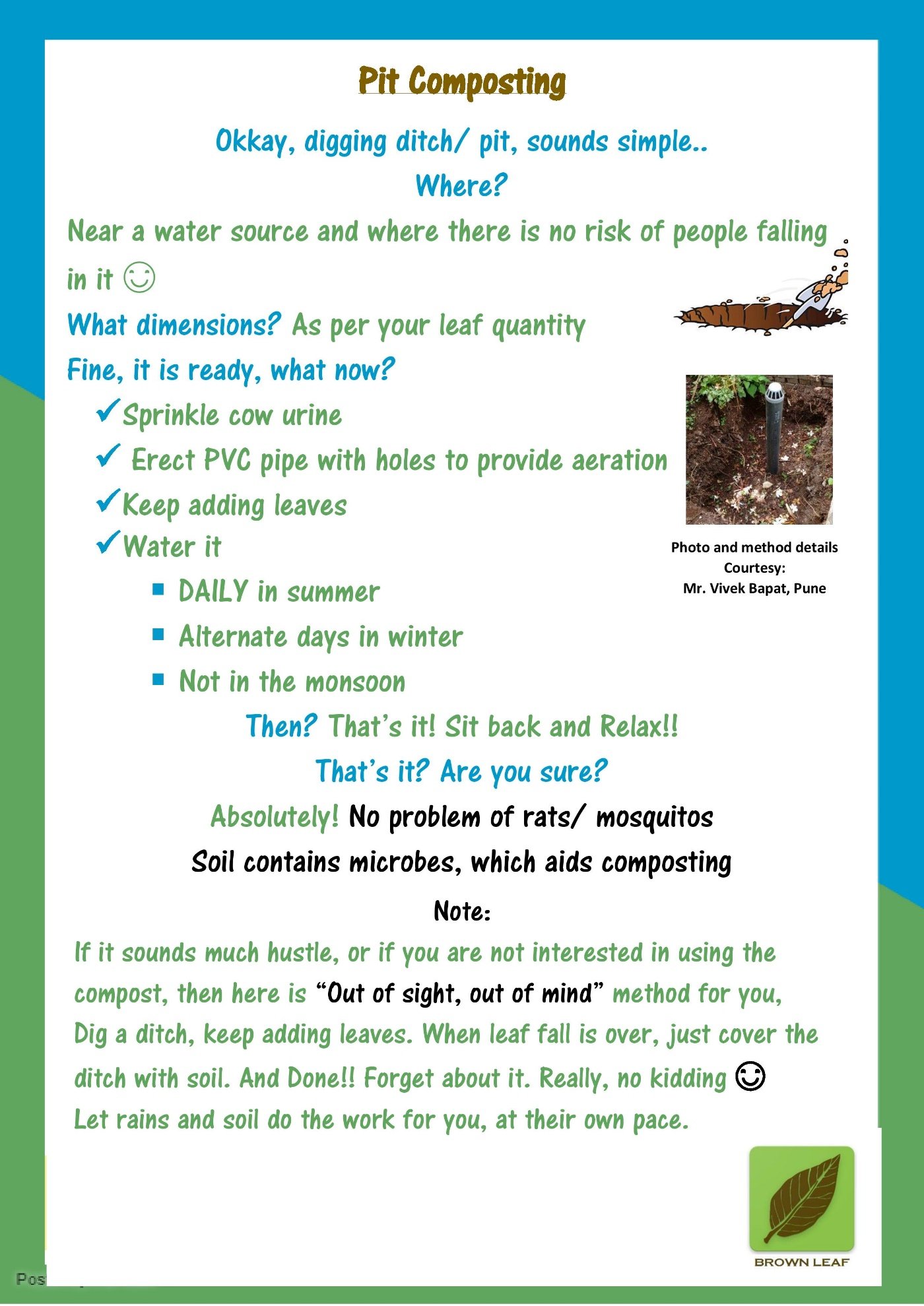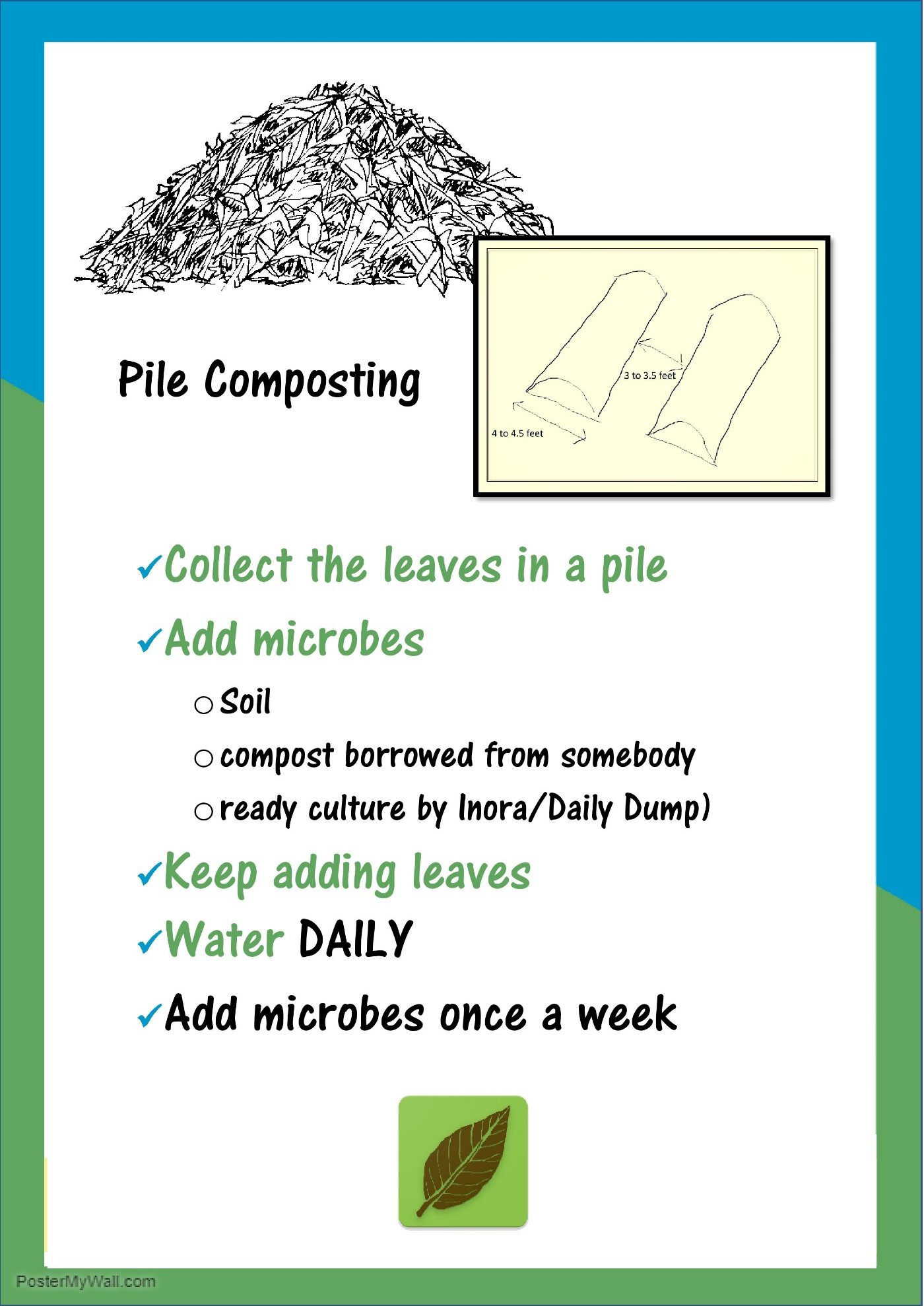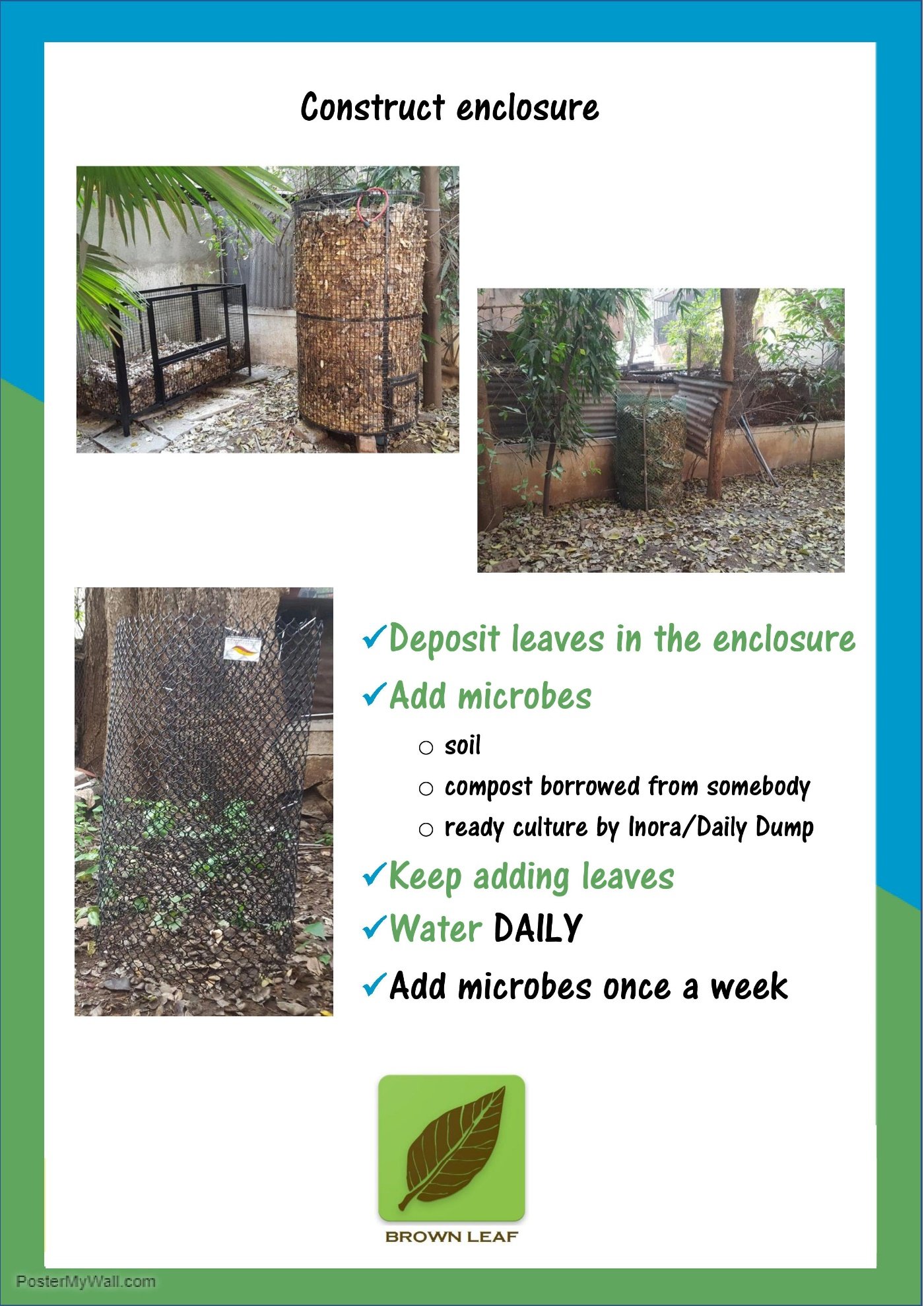Assess quantity of dry leaves
How many trees do you have?
This will give you rough idea of how much dry leaves you need to manage.
Do you know what type of trees are they?
Don’t worry, if you do not know all the names, that is fine.
Let’s see why we discuss this point.
Size of leaf
Rate of decomposition is directly proportional to the area of the leaf. Means, smaller leaves decompose faster compared to large ones.
Type of tree
Deciduous trees are those trees which shed all the leaves for some part of the year. They become completely leafless. E.g. Vaval, Karanj
Evergreen trees do not shed all the leaves, at the same time. e.g. Mango, Jamun.
With deciduous trees in your premises, quantity of large leaf litter will be large from November to April.
Evergreen trees will continue shedding leaves all through the year. But quantity at any given time will be manageable.
Native/ Exotic
It is observed that leaves of exotic trees decompose slow compared to those of native trees. Bamboo, Eucalyptus leaves will take much longer.
Leaf thickness
Leaves that of Jackfruit/ Banyan decompose slow owing to their thickness compared to leaves like that of Vaval, Karanj.
This is just to provide you an idea. Don’t worry if you have many exotics or all the deciduous. Time taken to decompose will vary depending on these factors. But composting will still happen effectively. We will plan your composting project considering all these factors.
Decide area for composting
Dry leaves, as the word suggests, well are dry 😊. ATM of composting, i.e. vital factors for composting are Aeration, Temperature and Moisture.
To provide moisture to dry leaves, we need to water them just as we water plants in the garden. For this reason, composting site should be close to a water source. A tap nearby will be convenient.
Make sure area does not receive too much sun all throughout the day. Leaves will lose all the moisture rapidly. Select a place with partial shade. In case such a place is not available, don’t worry. We can always cover the pit/ pile/ enclosure with a shadenet.
Decide composting methods

Ditch/ pit composting

Pile Composting

Enclosure Composting

Coming up next:
What type of enclosures can be used?
Constructing pigeon mesh enclosure
Method
Video
Photos
Composting
Composting Templates.
Let’s help you to make a successful composting project.
Step 1: Provide us details of the area
Is it an apartment/ society/ school/ college/ institute/ office?
What is the total area? In acre/ sq. ft?
If you do not know, that is fine. Just let us know roughly, let us know approximate no. of trees
How is the area?
Buildings
Roads
Foot-paths
Roof-tops
Garden
Step 2: Video Tour
Take us for the tour of your campus. Take your mobile, shoot a video clip and share with us.
Things to consider: Show us all the areas. We are especially interested to see how much soil is available.
What type of areas are there? Means, a planned garden. Area where trees are there, where nobody goes, empty plot.
Step 3: Area Categories
A maintained garden
Empty plot with soil
Area with large trees, with no human activity
Area between road and footpath, with soil present
Step 4: Quantity Assessment
How many leaf-shedding trees are present in your premises?
Currently, what do you do with the leaves?
Step 5: Let’s check how much help you have
For apartment, do you have a gardener?
For society/ institute, do you have gardening/ house-keeping staff?
How many?
Mulch and Compost strategies
Mulching
Areas not frequented by people- Benign neglect – Let nature do its work
Plant beds
Draw sketches and demonstrate
Strategy: Simply sweep leaves that fall in this area. That’s it. Don’t do anything. Let them decompose at their pace.
Why?
Some proportion of nutrients taken up by tree from the soil, are present in these leaves.
When leaves decompose, these nutrients are returned to the soil.
Composting
Step 5: Place Selection
Video tour
How many trees?
What are the trees? If you don’t know, upload photo of each tree.
Source of water?
Step 6: Method Selection
How much area has soil? Means there are no tiles/ no concrete, plain soil?
Photo of soil
Possible to dig a pit?
Pile?
Enclosure?
